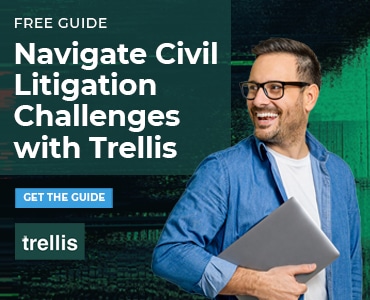Stephanie Kimbro will speak on “The Consumer Law Revolution: Lawyer Collaboration with Branded Networks” at the Lawyernomics 2013 conference in Las Vegas on April 27. Her topic is a hot one—and as author of three books on related topics and recipient of the 2009 ABA James Keane Award for Excellence in eLawyering, Stephanie is much in demand. We managed to catch up with her with a few questions for lawyers who may be about to take the virtual leap.
Where do you believe the greatest opportunities are for today’s lawyers?
The greatest opportunities for today’s lawyers are online. This is where the conversation about legal services is happening for the public, whether lawyers are present or not. It’s not just personal legal services that we are talking about. Companies and corporate clients are online, listening and engaging with their customers. Lawyers who understand and stay constantly up to date with the technology and the different opportunities to engage in online conversation are going to continue to grow and succeed. This is not only for client development. Lawyers need to know how their clients communicate and operate their businesses. The lawyer who does not understand online engagement is not going to be the best lawyer for a company whose customers are all engaging with the company online, whether wanted or not.
These opportunities are consumer-driven. Lawyers need to recognize that to provide legal services effectively, it is important to both listen in on and engage in this conversation around the law and legal services. The fact that these technologies and platforms have broken down barriers to communication and increased sharing of legal education and knowledge to the public provides a huge opportunity for the legal profession to use them effectively to increase access to justice. And lawyers will find that the same online opportunities allow them to increase their networking and client development. A win-win as I see it, as long as it stays a two-way online conversation between the public and the profession.
There are so many marketing opportunities for lawyers on the Internet, and many lawyers are just starting to put their toe in. For the uninitiated (or risk averse) where do you suggest a lawyer begin?
Those who have no experience with online marketing or social media should begin by visiting different online platforms and listening. They should understand how prospective clients might be using that platform to engage, and also how other professionals use each platform to network and to interact with the public.
There are different types of online methods of engagement with the public that may be used to promote legal services. There are social media applications, such as Twitter, Facebook and LinkedIn, and there are “branded networks.” Branded networks are companies that provide legal services directly to the consumer and also cultivate a network of lawyers to interact with the consumers. These networks provide additional tools the lawyers may use to market their practice or build referral networks. In addition to learning about the various tools, the lawyer needs to read the user agreement for each potential marketing platform and understand the confidentiality, access, privacy and other security-related concerns from its use. The lawyer also needs to have an understanding of ethics opinions that may exist in his or her jurisdiction that address a lawyer’s use of online marketing methods.
Then, after researching and listening in to the engagement that occurs on the different platforms, the lawyer needs to decide two things:
- Which platforms are going to be most effective based on practice area, client base and personal comfort level with the tools the platform provides.
- What “brand” or online presence the lawyer is going to cultivate for him- or herself.
Coming up with a plan for creating a consistent online presence before diving into using these platforms is going to make the lawyer more effective at using them effectively for client development.
Does social media really work as a marketing tactic for lawyers?
Don’t think of social media as a marketing tactic. Think of it as part of a conversation with the public. The Internet is a conversation, and social media allows for further engagement and sharing of this conversation. For years, lawyers have hesitated to engage in the larger public conversation and to share their knowledge about the law and legal processes. We have a lot of catching up to do, but first it has to start with reassessing long-standing assumptions about lawyer advertising. Lawyers need to consider how these online tools and the larger online conversation affect the public’s access to lawyers, and the legal system, and how it affects the public’s opinion of the legal profession. We need to be part of the conversation.
Lawyers who are sincere when engaging in social media are the ones who are successfully building their brand and online presence and driving traffic to their practices. The lawyers who go on Twitter or Facebook and “hard sell” themselves are not as successful because the public is savvy enough to research and shop for lawyers. They aren’t going to go to the lawyer who acts like a used-car salesman. They are going to the lawyer who has established trust and a reputation online by sharing blog posts on useful general legal guidance, and who has related to them through social media by being a human—not a removed and intimidating suit.
There is certainly a way to maintain professionalism online and fully, sincerely engage with the public. The lawyers who find this balance are the ones who will thrive in the future.
What is “unbundling” and how does it relate to online marketing?
Unbundling occurs when a lawyer takes the legal need of an individual and breaks it out into separate tasks. A limited scope engagement agreement is used to clearly define the role that the lawyer will play in handling only certain tasks for that client’s need and the client will be responsible for the remainder of the tasks.
Unbundling has become increasingly popular as more people are willing or need to seek out reduced legal fees in exchange for handling some of the work on their legal problem themselves. There are many forms of unbundling, from transaction-based to limited appearances. My book Limited Scope Legal Services: Unbundling and the Self-Help Client provides details on the ethics and best practices lawyers should be aware of for unbundling.
Why is this important to online marketing? Methods of unbundling legal services are used in the majority of online marketing tools provided by branded networks. Lawyers who join these branded networks have the opportunity to offer unbundled services, such as videoconferences, text-based legal consultations, review of legal documents and online coaching. The networks provide the technology used in the delivery of unbundled services, such as document automation and assembly tools, videoconferencing platforms and secure client account pages for exchange of documents.
What about good ethical guidelines for the practice of law over the Internet, or marketing legal services via the Internet? Isn’t it a fairly scary thing right now?
That is the subject of my upcoming book, Consumer Law Revolution: The Lawyer’s Guide to Working with Online Marketing Tools. And I recently released a free ebook of best practices with excerpts from the book, including an ethics section. I wanted to put this out there for the profession because in my research, I could not find clear guidelines other than the handful of state ethics opinions, many of which were related to very specific platforms.
As far as ethics guidelines for practice over the Internet, the ABA eLawyering Task Force published its suggested Minimum Requirements for Law Firms Delivering Legal Services Online several years ago. However, these guidelines pertain more to law firms operating virtual law practices rather than lawyers working with branded networks to deliver services online.
I don’t believe that marketing and delivering services online are scary things right now as long as the lawyer follows some basic best practices to comply with the rules of professional conduct.
What are the most exciting developments you see in the area of new practice models?
I am seeing a growth in multijurisdictional virtual law firms that combine the traditional law firm model with online delivery. These firms are using technology in interesting ways to help them deliver services—such as:
- Expert systems that aid in decision-making and outcome reporting
- Outsourcing administrative tasks to virtual assistants and receptionists
- Integrating document assembly and automation into regular practice and letting the client take some role in providing the information for those processes
Unbundling is growing as a form of legal services delivery because the technology makes it easier and more efficient. I see firms re-evaluating their existing services and finding ways to package and streamline the delivery of services where they can.
I am also excited by technology platforms that some of the legal tech start-ups are developing to address specific practice areas and needs. Lawyers will be encouraged to collaborate with these companies. Overall, this will benefit both the public, by increasing access to different forms of legal services, as well as legal professionals, who will be able to use sophisticated matching and delivery tools to build their online presence and tap into clients who are seeking services online.
Stephanie Kimbro is a member of Burton Law LLC and has served clients with unbundled North Carolina estate planning services online since 2006. Stephanie is the author of Limited Scope Legal Services: Unbundling and the Self-Help Client as well as Virtual Law Practice: How to Deliver Legal Services Online and the forthcoming book, Consumer Law Revolution: The Lawyer’s Guide to Working with Online Marketing Tools. She may be reached at skimbro@burton-law.com.
Sponsored Links
»Lawyernomics 2013: Generate more business online. Early bird deadline Feb. 28
»ALA Annual Conference & Exposition. April 14-17, National Harbor, MD
»Quality Attorney Leads. Reach Prospects Online. 10 Free Leads.
»Cloud-based practice management software: Free 30-day trial!
»Learn more about the easiest way to get paid.
»Simplify your practice with legal practice management in the cloud.
Illustration ©imagezoo.com
Attorney at Work is a media sponsor of Lawyernomics 2013.






















